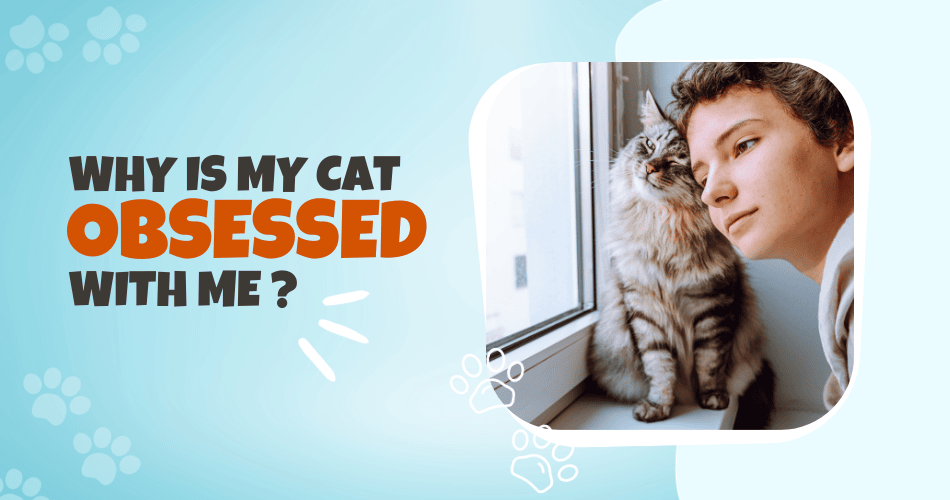Cats are the most adorable of all pets. Very often, you may find your cat displaying some sweet behaviors that make you wonder why exactly they do that. Some inquiries about cat behaviors go on forever, such as Why is my cat obsessed with me?
Your cat may become obsessed with you for several reasons. It can be their attention-seeking behavior, comfort, a sense of security, or playful nature. Obsession is a way for cats to express their love and affection for you.
Stick around and find out the reasons behind a cat’s obsession with you, the benefits of a cat’s attachment, and some potential concerns of over-attachment.
Why Your Cat Is Obsessed With You
As a cat owner, you may have noticed that your cat is very attached to you. Your cat may follow you around the house, keep jumping on you, sit on your lap, sleep next to you, rub against you, or even lick you when you pet her. You must be wondering why your cat is so obsessed with you. Is it a sign of love, trust, or something else?
Imagine you are busy working on something. Suddenly, you notice that your cat is near you, and its eyes are fixed on you as if you’re the most interesting thing in the world. You must feel special at that time, right?
To cats, humans aren’t just providers of food. We are their chosen companions, the ones they trust amidst the unpredictability of life. And this trust is built over time and experiences that open the door to a deep obsession. But is trust the only reason for your cat’s obsession?
If you understand why your cat is obsessed with you, you can appreciate the unique bond you share with your pet and provide the best care for them.
Now, let’s look at the possible reasons why your cat is obsessed with you.
11 Reasons Why Your Cat is Obsessed With You
So, why is your cat obsessed with you? Take a look at the 11 unique reasons for a cat’s obsession and what they mean.
1. The Unique Human-Cat Relationship
Cats have a unique relationship with humans that is based on mutual respect, understanding, and trust. Cats do not see humans as their masters or owners but as their friends or family members.
They value the resources and companionship that humans provide them, but they also respect their own needs and boundaries. Cats do not obsess over humans because they have to but because they want to.
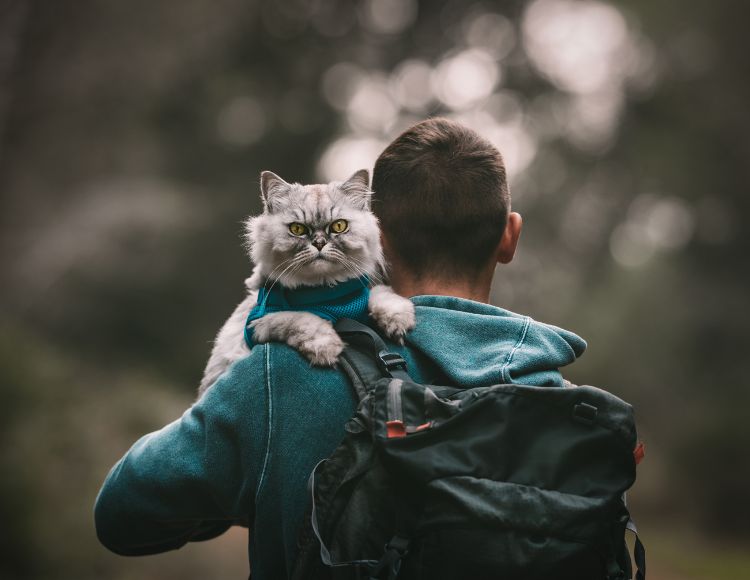
It means that if your cat is obsessed with you, it is a sign of their appreciation and affection for you. They recognize you as someone who cares for them, provides for them, and understands them. Cats enjoy spending time with you and sharing their life with you. They also trust you enough to let you into their personal space and show you their vulnerable side.
2. Memories of Kittenhood and Early Care
Another reason why your cat may be obsessed with you is that they associate you with their early experiences of care and nurturing. If you adopted your cat when they were a kitten or young adult, you might have taken over the role of their mother in some ways.
You may have bottle-fed them, cleaned them, cuddled them, played with them, taught them new things, and introduced them to new environments. You may have also been the first human they ever encountered or bonded with.
In this case, the obsession of them for you is a sign of their attachment and gratitude to you. They see you as their parent figure who nurtured them, loved them, and helped them grow up. They feel safe, secure, and happy in your presence. Cats also seek your approval, attention, and guidance in their life.
Even if you adopted your cat as an adult, they may still remember their kittenhood and seek the same kind of care from you.
3. Your Scent and Presence
Sometimes, your cat may get obsessed with you because they are attracted to your scent and presence. Cats have a great sense of smell. They can differentiate and identify your unique smell from others.
Your scent is a source of familiarity and affection for them. Your cat is obsessed with you because they love your scent and want to be near you. It may also sleep on your clothes, pillow, or bed to enjoy your scent when you are away.
4. The Comfort and Security Your Presence Brings To Your Cat
Cats are naturally cautious of unfamiliar or threatening situations. They may feel stressed, anxious, or fearful when encountering new people, animals, places, sounds, or smells. They may also suffer from separation anxiety when left alone for too long or too often.
If your cat is obsessed with you, it shows their dependence and trust in you. They see you as their protector and provider who can keep them safe and comfortable. They seek your company when they are feeling insecure or nervous.
5. Seeking Warmth and Comfort
Cats are naturally drawn to warmth, and your body provides a cozy source of heat. Your cat’s obsession can arise from the physical and emotional need for warmth and comfort. They see your body as a warm place to snuggle up and sleep. Your body heat is like a magnet for them.
6. Wants Soft Surfaces and Cuddly Corners
Another reason why your cat may be obsessed with you is that they want soft surfaces and cuddly corners of your body to relax. Cats like to rest and nap in soft, fluffy, or cushiony places. They may see you as a soft and fluffy place to lie on and cuddle with. They also enjoy your arms, legs, blanket, or clothes when they want to cover up.
7. Curiosity and Playfulness Nature
Cats are naturally curious and playful animals. When they see you moving or engaging in activities, their natural curiosity takes over. Cats may want to join you to play or investigate what you are doing. They can jump on you when you’re standing, watch you work, or simply follow your every move.
8. Food and Treats Connection
Food can be a strong reason for your cat being obsessed with you. It is a sign of hunger and appetite for food and treats of cats. You’re the one who feeds them, fills their water bowl, and offers those delicious treats. They may follow you around, hoping for a snack or a meal, which further deepens their attachment.
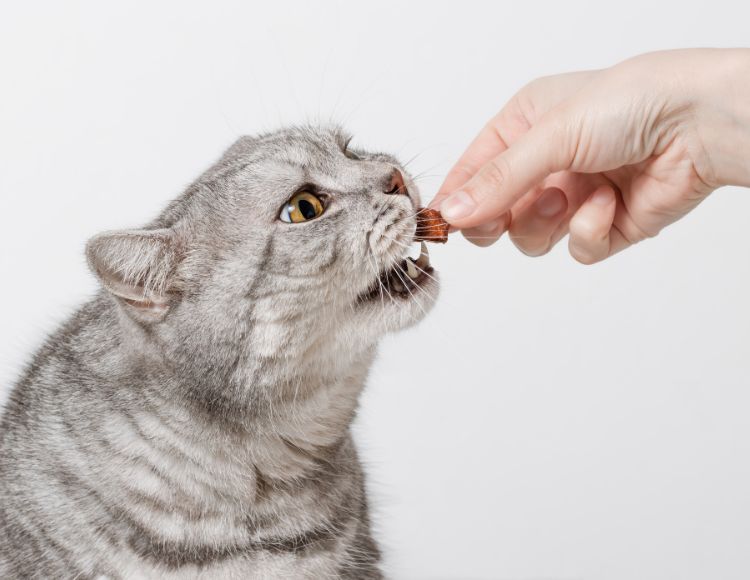
9. Routine and Habitual Behavior of Your Cat
Cats are habitual creatures and like having the same eating times, clean litter, grooming schedule, and play times. Your cat is obsessed with you because they have learned to adapt to your routine and habits. Your cat may follow your daily patterns and join you in your activities.
For example, your cat may wake you up in the morning, greet you when you come home, or watch TV with you in the evening. Your cat may also mimic your behaviors or expressions to show their connection with you.
10. Marking Their Space and Loved Ones
Cats have scent glands on their cheeks and the base of their tails. When your cat rubs their cheeks against you, they are leaving their scent behind, marking you as part of their territory. It is a sign of affection and ownership, and it’s a way of saying, “You belong to me.”
Your cat may rub its head or body against you, lick you, or scratch the floor and your furniture to leave their scent on you or your things.
11. Claiming You as Part of Their Territory
Cats are territorial animals that like to stay close to you. They try to form bonds and may extend their sense of territory to include you. Your cat sees you as part of their family, which can lead to their obsession with protecting you and keeping you within their perceived territory.
Possible Concerns of Over-Attachment
While a strong bond with your cat is heartwarming, it’s essential to be aware of possible concerns that can arise from over-attachment. Let’s find out some potential concerns that might arise from your cat’s over-attachment.
Over-dependence and Lack of Independence
Excessively obsessed cats may become overly dependent on their owners. Your cat may become too reliant on you for physical and emotional needs and lose their instincts and abilities.
They may struggle to cope when you’re not around. Your cat can also become stressed or depressed when you are away. It can affect their health, behavior, and quality of life.
Behavioral Issues and Over-Protectiveness
Over-attachment to the owner causes separation anxiety that can lead to behavioral problems in cats. Your cat can sometimes display over-protective behavior if it is intensely attached to you.
Your cat may become jealous, possessive, or aggressive towards other people or animals near you or your things. It can create conflicts, damages, and disturbances in your home and neighborhood. It’s essential to address such behavior through training and socialization to prevent aggression.
Disruption of Daily Activities
Over-attachment of your cat can disrupt your daily activities and routines. It might demand constant attention and interfere with your work, study, or leisure. Your cat can prevent you from sleeping, eating, or watching TV by jumping or scratching. To stop cats from jumping on TV or jumping on your bed, you have to train them to be independent.
Your cat may also try to control your movements by blocking your way, trying to bite the nib of your pen, sitting on your keyboard, or jumping on your lap. It can affect your productivity, health, and well-being.
How to Prevent Obsessive Cat Behaviors
If your cat becomes too obsessed with you, it can cause trouble for you to maintain them. So, you have to prevent these obsessive behaviors of your cat. Here are some strategies to prevent and manage obsessive cat behaviors.
Train Your Cat
Training your cat is the best way to prevent their obsessive behavior. It can help establish a routine and a bond between you and your cat. It can also teach your cat appropriate behaviors and discourage unwanted ones.
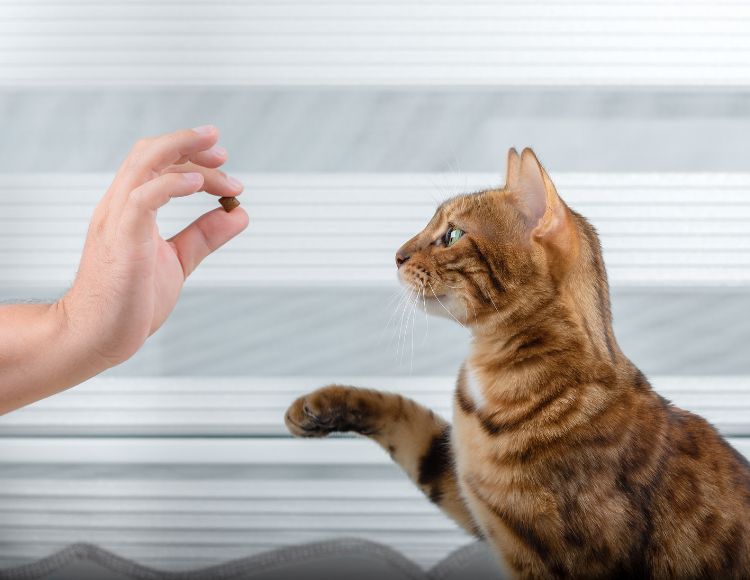
You can use positive reinforcement techniques, such as praise, treats, or toys, to reward your cat when your cat doesn’t display obsessive behavior.
Also, proper training can help your cat learn boundaries and appropriate behavior. Basic commands, like “stay” or “leave it,” can help to control them and promote positive interactions.
Provide Physical and Mental Stimulation
Cats need constant physical and mental stimulation to keep them healthy and happy. Lack of stimulation can lead to boredom, frustration, and behavioral problems. Your cats will become obsessed with you to provide them with physical and mental stimulation.
Engage them in play with interactive toys, puzzles, and scratching posts to utilize their energy and keep their minds sharp. Regular play sessions with you allow your cat to socialize and exercise. It will prevent their obsessive behaviors.
Reduce Stress and Anxiety
Stress and anxiety can lead to obsessive behaviors in cats. Cats can be stressed or anxious by the changes in their environment, lack of food or water, loud noises, or separation from their owners. Punishing or scolding your cat can also increase their stress and anxiety levels.
You can reduce your cat’s stress and anxiety by providing them with a safe and comfortable environment that meets their needs and preferences. You must ensure your cat has everything they require.
Seek Professional Help
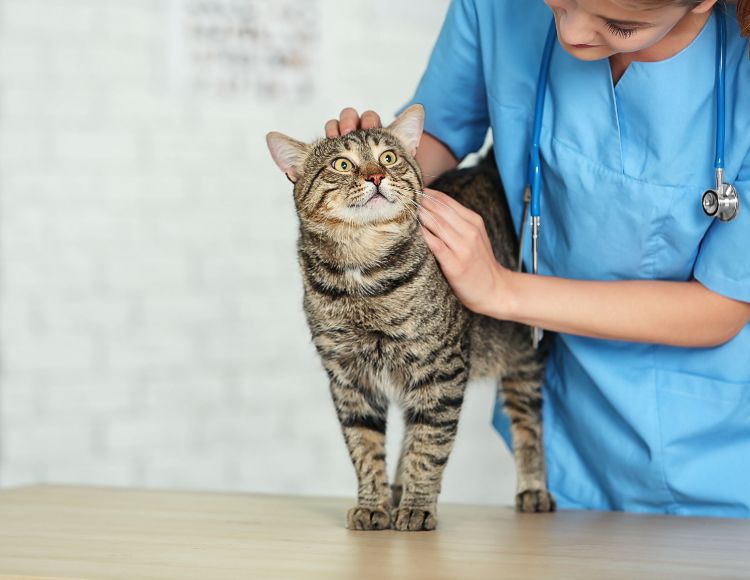
If your cat’s obsessive behavior becomes problematic despite your efforts to prevent it, you may need to seek professional help from a veterinarian or a certified animal behaviorist.
Animal professionals can guide you if your cat has any medical issue or a severe psychological disorder, such as compulsive disorder or separation anxiety. They can also offer guidance and strategies to address specific issues.
Conclusion
Finally, you got your answer to “Why Is My Cat Obsessed With Me.” Your cat’s obsession displays their love for you and that they see you as their family. Your cat may have different reasons for being attached to you, such as your scent, your warmth, your care, your food, or your routine.
Having a cat’s affection can bring you many benefits, such as emotional support, mental health perks, enhanced bonding, and positive stimulation.
However, you should also be aware of the possible concerns of over-attachment. Understanding these concerns can help cat owners strike a balance, ensuring their cats are both attached and independent, happy and well-adjusted.
You can help your cat to be more independent and confident by providing them with enough toys, socialization, and space. If you notice any signs of stress or anxiety in your cat, consult a veterinarian or a behaviorist for professional guidance.

